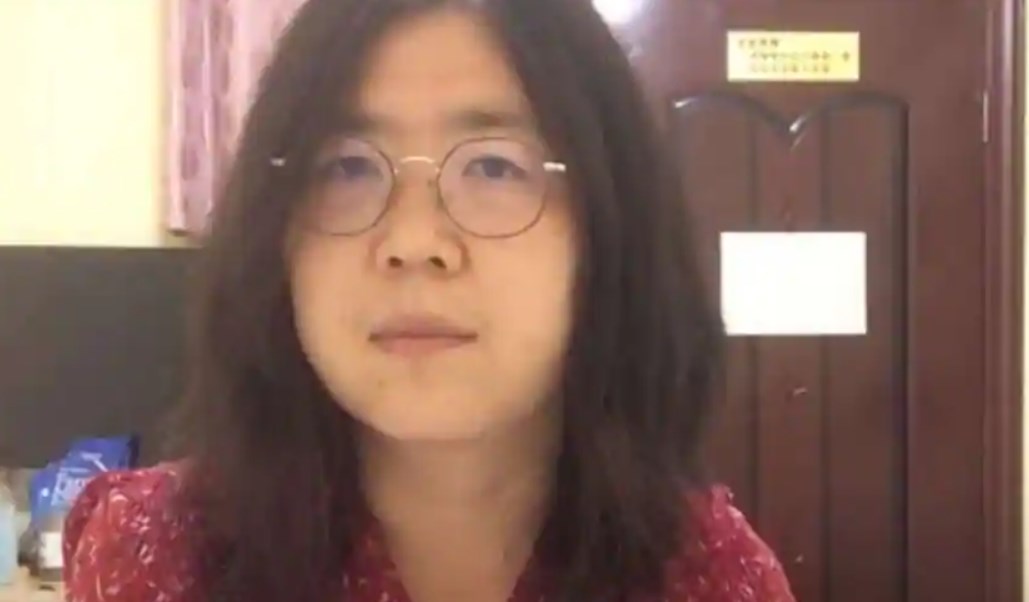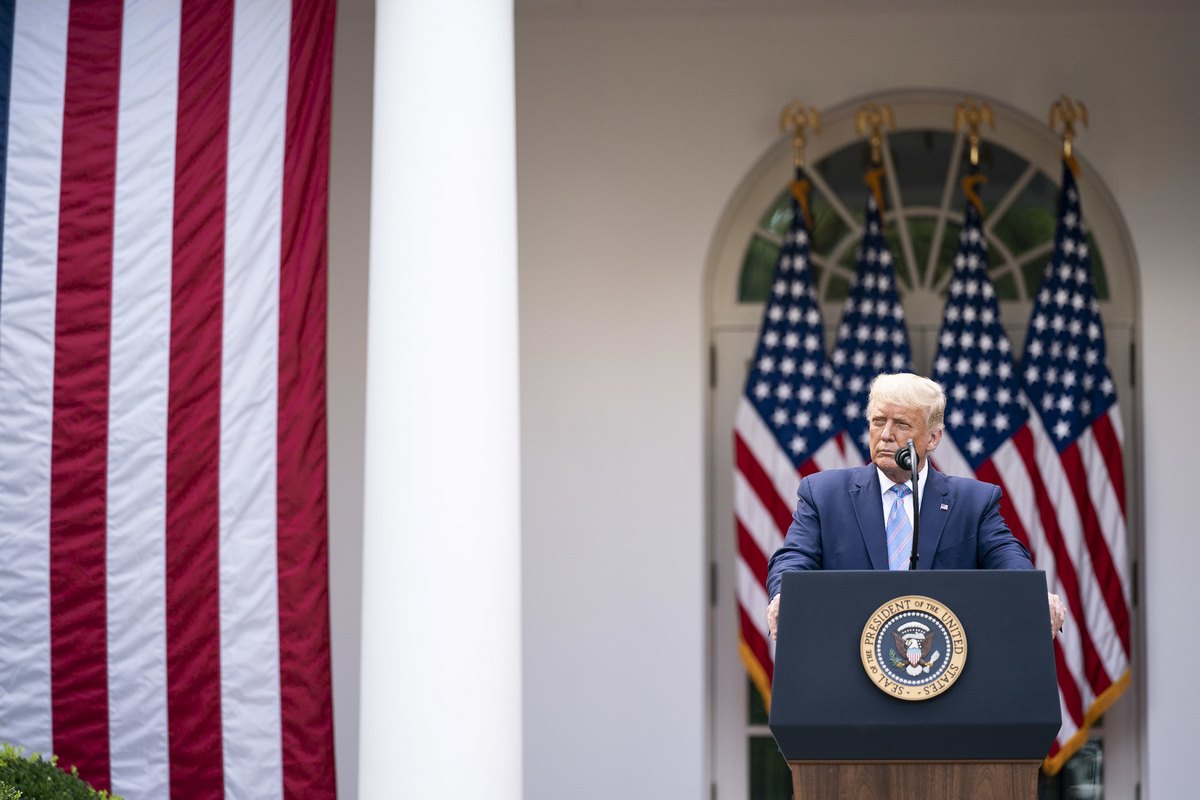The world watched in shock and amazement last week as a mob of President Donald Trump’s supporters stormed the Capitol Building in Washington D.C. Riled up by Trump and some of his closest allies following a weeks-long diet of conspiracy theories and lies about the election, they tried to thwart the final step in the electoral process and keep Trump in power.
As the mob rampaged through the building and the grounds, the press found themselves set on by angry individuals and groups. Some were physically attacked, others were taunted as enemies of the people and some had their equipment destroyed — while members of the crowd derided their work as fake news. The statement “Murder the media” was found written on a door inside the Capitol Building. Even now, conspiracy theories abound that the day’s events were a set-up and that the media spread a fake news story about it.

“For the past four years, the Trump administration has lobbed attacks against individual and institutional news media. As the world has now witnessed, this rhetoric is not just a political diversion — it can embolden mobs to attack reporters who are simply trying to do their job of keeping the public informed,” said Martinez de la Serna of the Committee to Protect Journalists.
These attacks on the free press have not been confined to the US but have continued around the world. In just the few weeks since my last article on assaults during 2020, the final days of the old year saw yet more attacks, and 2021 has got off to a dark start.
In the waning days of 2020, citizen journalist and former lawyer Zhang Zhan, was sentenced to four years in prison for her coverage of the Covid-19 outbreak in Wuhan. She had travelled there from Shanghai to report, and her dispatches on social media were shared widely until she went dark in May. It later transpired that she had been arrested. She was convicted of “picking quarrels and provoking trouble,” one of her lawyers was quoted by the Associated Press as saying.

Zhang is not the only citizen journalist to disappear over coverage of Wuhan. According to the New York Times at least three others were arrested. Chen Qiushi and Li Zehua were released later but Fang Bin is still missing.
In Bangladesh, photographer Abul Kalam was arrested for photographing the relocation of Rohingya refugees from camps around Cox’s Bazar to the isolated island of Bhasan Char in the Bay of Bengal. Kalam, himself a Rohingya who has lived as a refugee in Bangladesh since the early 1990s, was also reportedly beaten before taking to a police station. The United Nations had raised concerns that the refugees were coerced into moving. The island is prone to flooding and cyclones and may not have the infrastructure to safely house the refugees.
January 1 dawned with the news that journalist Bismillah Adel Aimaq, the head of a local radio station and human rights activist, was shot and killed in Feroz Koh in Afghanistan by unidentified attackers. He was the first journalist reported killed in 2021 but at least the third journalist to die in Afghanistan since early December 2020, according to the Committee to Protect Journalists, and the fifth since the start of November.

A few days later In Vietnam, three journalists were convicted of producing and disseminating “distorted information about the people’s government.” Pham Chi Dung was sentenced to 15 years in prison, while Nguyen Tuong Thuy and Le Huu Minh Tuan each received sentences of 11 years.
Pham Chi Dung is the founding chairman of the Independent Journalists Association of Vietnam. It advocates for a free press in Vietnam, which ranks 175th out of 180 in press freedom, according to the 2020 Reporters Without Borders World Press Freedom Index. But the government sees the association as a tool to incite people against the Communist Party. Nguyen Tuong Thuy is the vice president of the journalists’ association. Le Huu Minh Tuan is a freelance journalist whose work has appeared its news site.
In Hong Kong it was announced on January 3 that Covid-19 press conferences would be replaced by online events, with reporters forced to submit questions ahead of time in writing. The Hong Kong Journalists Association said this would allow the government to select questions. “This seriously hampers the public’s right to know and is a big step back from press freedom,” it said. Authorities soon backtracked.

Soon afterwards Hong Kong police demanded that Apple Daily give them the names of journalists who have searched official licence plate records as part of their reporting. Last November RTHK producer Choy Yuk-ling was arrested and accused of breaching the Road Traffic Ordinance by making similar searches in regards to the Yuen Long mob attack of July 2019. This comes as a new system was put in place under which vehicle owners can be notified if their licence plate records are searched.
Then came the arrest of 53 pro-democracy politicians and activists related to the legislative primaries held in 2020. The same day as the arrests, police visited the offices of Apple Daily, InMedia and StandNews to serve warrants. They were seeking information on the primary and on the candidates.
All of these incidents constitute attempts to intimidate the free press, censor its work and keep the public in the dark. They were accompanied by a rise in conspiracy theories, lies and propaganda all over the internet, making a free press more important than ever. Government actors use social media to maintain and increase their power by spreading lies and conspiracy theories and only releasing the information that they want seen and the story they want told.
Uncovering the underlying truth becomes of the utmost importance. A free press works to keep governments in check, bring to light what they are doing and reveal the facts they are trying to cover up.

The events at the Capitol are an example of what happens when the lies and conspiracy theories take over and the truth is seen as fake news. It has damaged America’s worldwide reputation and its ability to stand against foreign leaders who would try to suppress the press in their own countries. If journalists can be attacked as fake news purveyors and enemies of the people on the very steps of the halls of government, journalists become less safe everywhere.
In his four years in office, Trump made the world a much more dangerous place for journalists. By disparaging the press in the United States, he gave a free pass to authoritarian leaders around the world to do the same and clamp down as hard as they wanted.
As his term in office comes to a close and Joe Biden prepares to take over, there is much work to be done to ensure the safety of journalists everywhere. First America must resume its place as a beacon of press freedom and take a stand against those who would silence the press –instead of having the office of president add fuel to the fire. This will not be a simple task, with the country badly divided. But if 2021 is going to be better than 2020 for journalists, those who would attack the press must once again fear the consequences.
It is not the answer to all of the problems the press face in doing their work, but it would be a major step in the right direction.
Support HKFP | Policies & Ethics | Error/typo? | Contact Us | Newsletter | Transparency & Annual Report | Apps
| HKFP is an impartial platform & does not necessarily share the views of opinion writers or advertisers. HKFP presents a diversity of views & regularly invites figures across the political spectrum to write for us. Press freedom is guaranteed under the Basic Law, security law, Bill of Rights and Chinese constitution. Opinion pieces aim to point out errors or defects in the government, law or policies, or aim to suggest ideas or alterations via legal means without an intention of hatred, discontent or hostility against the authorities or other communities. |
Help safeguard press freedom & keep HKFP free for all readers by supporting our team

More HKFP OPINION:
HKFP has an impartial stance, transparent funding, and balanced coverage guided by an Ethics Code and Corrections Policy.
Support press freedom & help us surpass 1,000 monthly Patrons: 100% independent, governed by an ethics code & not-for-profit.










